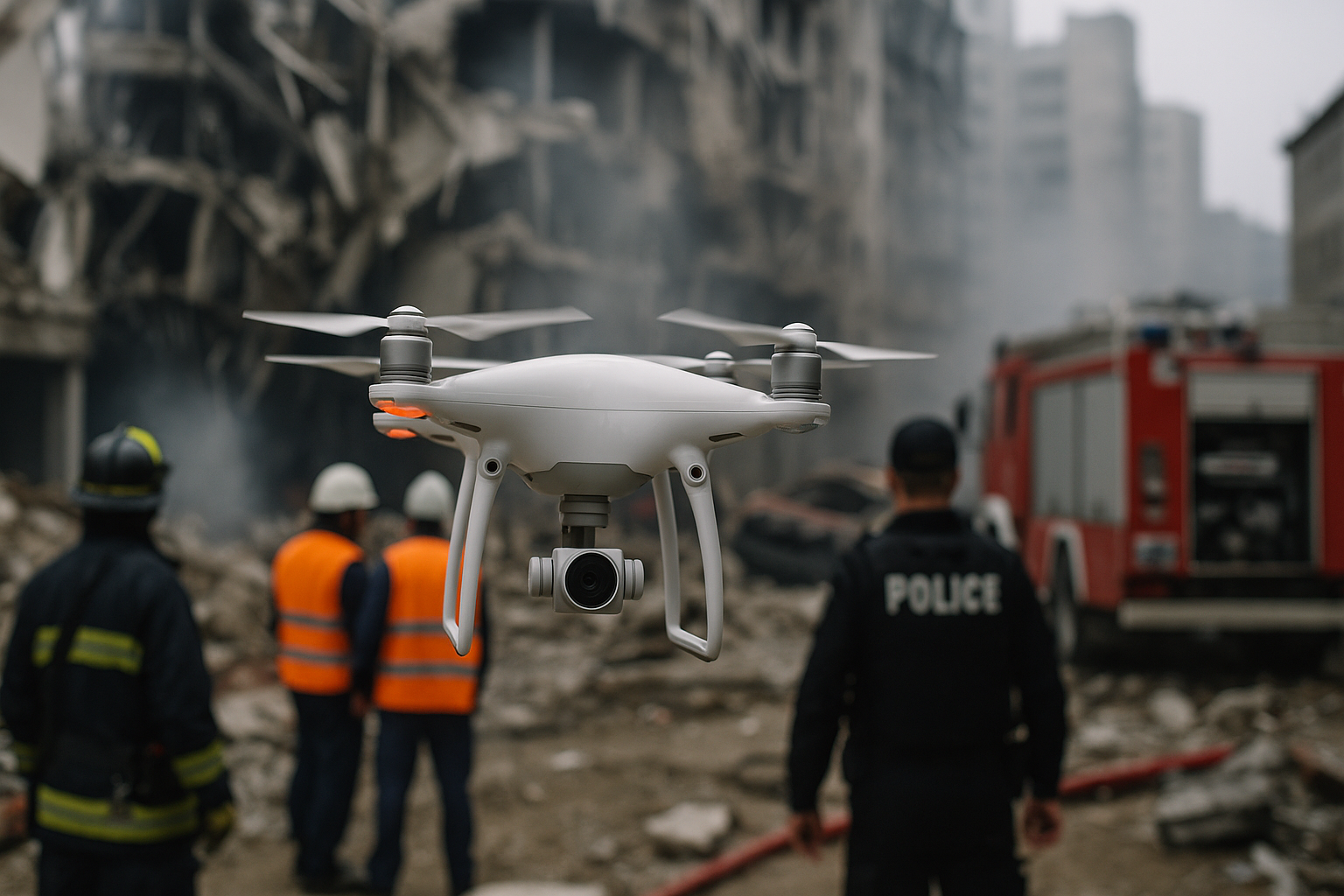AI promises faster disaster response but risks widening inequalities
AI models used in emergency management depend on historical data, which often reflects social and structural inequalities. If left unchecked, these systems risk reinforcing discrimination. For example, resource allocation tools may systematically disadvantage marginalized communities, while facial recognition deployed in evacuation or relief operations has shown higher error rates for certain demographic groups.

Artificial intelligence (AI) is reshaping how governments and agencies prepare for and respond to disasters, but new research warns that without ethical safeguards, these technologies risk deepening inequalities and eroding trust. A group of researchers have mapped the ethical challenges posed by AI in disaster management.
The study, titled A Review of Ethical Challenges in AI for Emergency Management, was published in Knowledge in 2025. It offers one of the most comprehensive reviews of how AI is currently being applied across all stages of disaster management, from mitigation and preparedness to response and recovery, and highlights the critical gaps in governance that must be addressed.
Can AI systems be fair and unbiased in disaster response?
The research identifies algorithmic bias as a key threat. AI models used in emergency management depend on historical data, which often reflects social and structural inequalities. If left unchecked, these systems risk reinforcing discrimination. For example, resource allocation tools may systematically disadvantage marginalized communities, while facial recognition deployed in evacuation or relief operations has shown higher error rates for certain demographic groups.
Bias also emerges in predictive models that guide decision-making before disasters occur. Systems that rely on incomplete datasets can fail to capture the vulnerabilities of rural or underserved populations, leading to skewed readiness strategies. This not only undermines fairness but also magnifies existing gaps in resilience.
The authors argue that ensuring equity requires active auditing of algorithms, transparent reporting of model limitations, and deliberate inclusion of diverse datasets that reflect the realities of vulnerable populations. Without such measures, AI may not only fail to protect those most at risk but could also exacerbate disparities in disaster outcomes.
How do privacy, transparency and accountability shape AI governance?
The second major challenge centers on the lack of transparency in AI systems and the implications for privacy and accountability. Many of the tools deployed in emergency contexts function as “black boxes,” offering predictions or recommendations without clear explanations of how conclusions were reached. In crisis situations where lives depend on rapid decisions, this opacity poses serious risks.
At the same time, AI systems often rely on sensitive personal data, including geolocation, health information, and biometric identifiers. If improperly managed, such data collection can infringe on individual privacy and create opportunities for misuse. The lack of consistent governance frameworks across jurisdictions only heightens the danger of violations.
Accountability is another unresolved issue. When AI recommendations lead to harmful outcomes, it is rarely clear who is responsible, the system’s developers, the emergency agency that adopted it, or the operators who executed the recommendation. The study stresses that robust governance frameworks are needed to clarify roles, establish liability, and ensure transparent oversight.
The researchers highlight that frameworks like AI4People and AI4EM offer starting points but remain underutilized. They recommend embedding explainability into system design, strengthening legal safeguards for personal data, and introducing clear accountability structures to build trust in AI-assisted emergency responses.
How should humans and AI collaborate in crisis management?
While AI offers powerful capabilities for logistics optimization, disaster prediction, and rapid data processing, the study underscores that human judgment must remain central. The authors caution against over-reliance on automated decision-making, noting that humans bring contextual awareness, ethical reasoning, and the ability to navigate uncertainty in ways machines cannot replicate.
Effective human–AI collaboration requires designing systems that support rather than replace decision-makers. This means ensuring that emergency managers can interpret, question, and override AI outputs when necessary. Training personnel to understand AI tools and their limitations is equally critical, so they are empowered to use these technologies responsibly during high-pressure situations.
The researchers also points out the need to involve a wide range of stakeholders, including local communities, policymakers, and technologists, in shaping how AI is deployed. This inclusive approach not only improves system design but also ensures that diverse ethical perspectives are considered in governance frameworks.
- FIRST PUBLISHED IN:
- Devdiscourse










